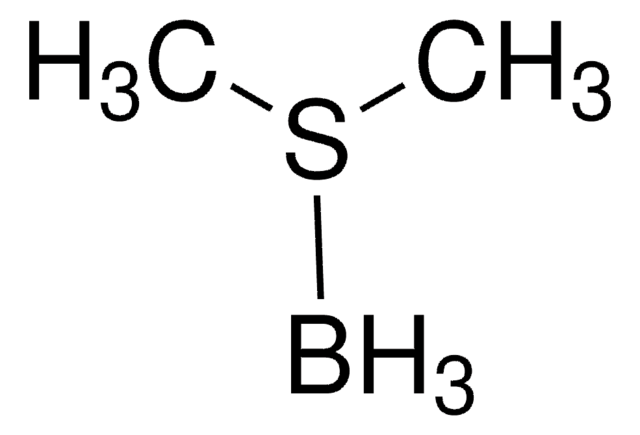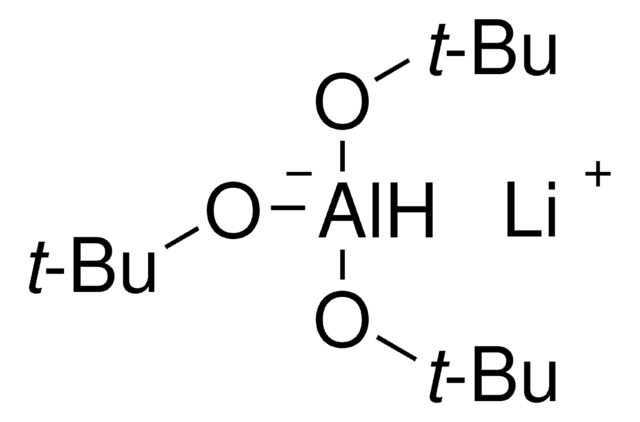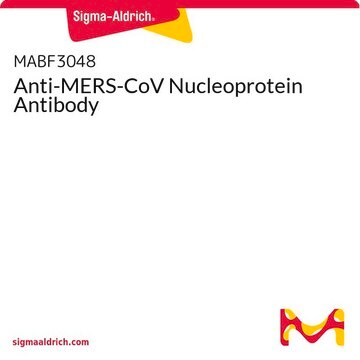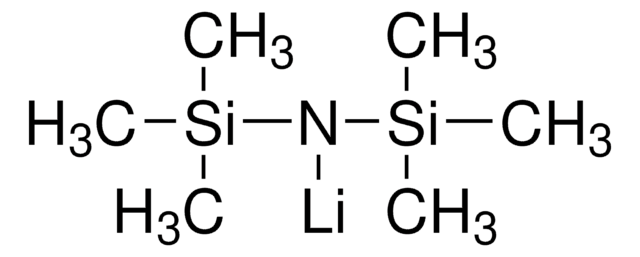658235
Lithium-(dimethylamino)-trihydroborat -Lösung
1 M in THF
Synonym(e):
N-Methylmethanamin-bor-Komplex, Lithium-Dimethylaminoborohydrid, Lithium-trihydro-(N-methylmethanaminato)-borat
About This Item
Empfohlene Produkte
Eignung der Reaktion
reagent type: reductant
Konzentration
1 M in THF
Brechungsindex
n20/D 1.423
Dichte
0.882 g/mL at 25 °C
Lagertemp.
2-8°C
SMILES String
[Li+].[BH3-]N(C)C
InChI
1S/C2H9BN.Li/c1-4(2)3;/h1-3H3;/q-1;+1
InChIKey
CEDUMRZWZLVFKS-UHFFFAOYSA-N
Verwandte Kategorien
Allgemeine Beschreibung
Anwendung
Reactant for:
- B-H oxidative addition reactions
- Reduction and amination reactions
- Reduction of N-alkyl lactams
- Synthesis of tertiary amine-boranes
Signalwort
Danger
H-Sätze
Gefahreneinstufungen
Acute Tox. 4 Oral - Carc. 2 - Eye Irrit. 2 - Flam. Liq. 2 - STOT SE 3
Zielorgane
Respiratory system
Zusätzliche Gefahrenhinweise
Lagerklassenschlüssel
4.3 - Hazardous materials which set free flammable gases upon contact with water
WGK
WGK 3
Flammpunkt (°F)
1.4 °F - closed cup
Flammpunkt (°C)
-17 °C - closed cup
Hier finden Sie alle aktuellen Versionen:
Besitzen Sie dieses Produkt bereits?
In der Dokumentenbibliothek finden Sie die Dokumentation zu den Produkten, die Sie kürzlich erworben haben.
Kunden haben sich ebenfalls angesehen
Artikel
Lithium aminoborohydride (LAB) reagents are a new class of powerful and selective reagents developed in the laboratory of Professor Bakthan Singaram at the University of California, Santa Cruz.
Lithium aminoborohydride (LAB) reagents are a new class of powerful and selective reagents developed in the laboratory of Professor Bakthan Singaram at the University of California, Santa Cruz.
Verwandter Inhalt
here are many optically active organic compounds of biological and medicinal significance. For example, statine analogs, antibiotics, anesthetics, heterocyclic compounds, unusual amino acids, and insect pheromones all contain stereogenic centers. There is, therefore, a continuous need for new asymmetric methodology.
Unser Team von Wissenschaftlern verfügt über Erfahrung in allen Forschungsbereichen einschließlich Life Science, Materialwissenschaften, chemischer Synthese, Chromatographie, Analytik und vielen mehr..
Setzen Sie sich mit dem technischen Dienst in Verbindung.







![[1,1′-Bis(diphenylphosphin)ferrocen]dichlorpalladium(II), Komplex mit Dichlormethan](/deepweb/assets/sigmaaldrich/product/structures/825/986/4317978b-1256-4c82-ab74-6a6a3ef948b1/640/4317978b-1256-4c82-ab74-6a6a3ef948b1.png)


